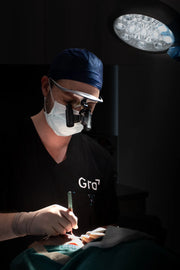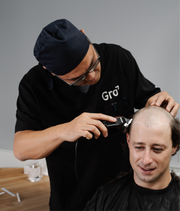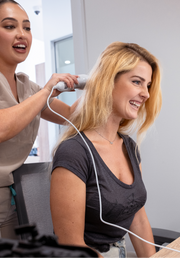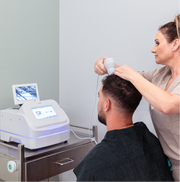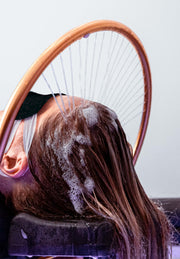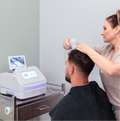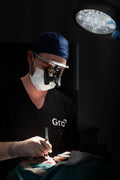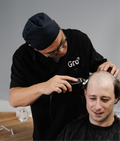If you’ve ever searched "how to grow hair faster," you’re not alone. While rapid growth solutions don’t exist, supporting your hair to grow stronger and healthier for longer is possible with the right habits, products, and knowledge.
Understanding Hair Growth
Hair growth follows a natural cycle and varies slightly between individuals based on genetics, age, and health.
The Three Stages of Hair Growth
- Anagen – The growth phase (2–6 years)
- Catagen – The transition phase (around 10 days)
- Telogen – The resting/shedding phase (about 3 months)
On average, people shed 100–150 hairs per day as part of this natural cycle. A healthy scalp environment can help support longer anagen (growth) phases for your hair.
5 Ways to Support Hair Growth
1. Choose the Right Haircare Products
Scalp health plays a big role in supporting growth. Choosing the right moisturising or volumising products can help manage dryness, irritation, or lack of volume. Those with sensitive scalps may benefit from prescription-based care, if clinically appropriate.
2. Consider Prescription Haircare
Some prescription treatments may support hair density in certain individuals when used consistently and under medical supervision. Learn more via Gro’s prescription haircare program.
3. Support Nutrition with Supplements
A balanced diet supports general wellbeing, including hair health. Supplements may assist in meeting nutritional needs, but should be used under guidance from a healthcare provider. See our daily supplement to explore what’s available.
4. Prioritise Protein Intake
Hair is made primarily of keratin, a protein. Low protein intake may affect hair strength. Include foods like fish, eggs, legumes, and nuts regularly.
5. Explore Non-Surgical Options
Options such as growth factor therapy, PRF, LLLT, and PRP may be considered in some care plans. Evidence for these varies, so it’s important to speak with a registered health practitioner to determine suitability.
What to Avoid
1. Frequent Heat Styling
High heat can weaken and break hair strands. Use heat protectants and limit styling tool temperature.
2. Bleaching or Harsh Dyes
Chemical treatments can damage the hair shaft. Opt for gentler colouring methods or reduce frequency to support length retention.
3. Tight Hairstyles
Styles that place repeated tension on the roots (tight braids, high ponytails) can strain follicles. Alternate styles to reduce breakage.
4. High Stress
Stress can influence hair shedding. Support your wellbeing through exercise, rest, and mindfulness-based habits.
5. Crash Dieting
Sudden nutrient restriction may affect hair growth. Balanced meals ensure your body can allocate resources to maintain hair health.
When to Seek Advice
If you’re noticing changes in hair density, speak with a qualified health practitioner. At Gro Clinics, our hair growth advisors can guide you toward the right consultation pathway—whether it’s a doctor or dermatologist for further assessment, or non-surgical support for hair and scalp health.
Locations
We offer consultations across Australia and New Zealand:
Book your consultation or ask us a question.
Disclaimer
This content is for informational and educational purposes only. It does not constitute medical advice or imply individual results. Any treatment or product mentioned should be used under the guidance of a registered health practitioner. Always consult a health professional before starting any medical treatment.

